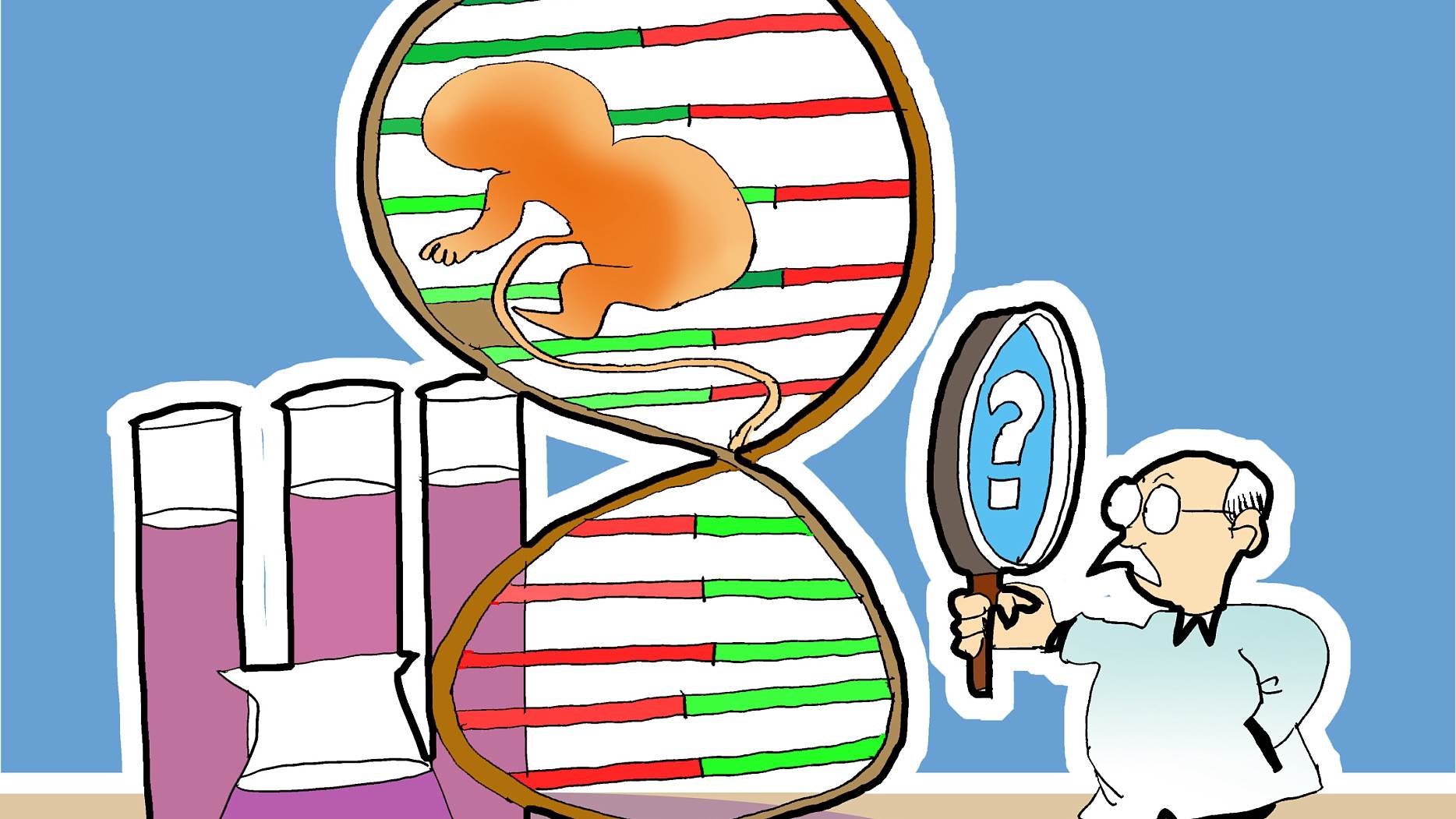
China
22:01, 28-Nov-2018
Timeline: World's first gene-edited babies
Updated
21:35, 01-Dec-2018
CGTN

He Jiankui's experiment has set off a wave of indignation. The story is convoluted. How has it unfolded so far?
11:00 Nov 26, 2018
Chinese geneticist He Jiankui announced that he had created the world's first genetically edited babies. According to him, the twin girls, born healthily a few weeks ago, had their DNA altered as embryos to immunize them from being infected by the HIV virus.
12:30 Nov 26, 2018
He Jiankui's identity was revealed – an associate professor of the Southern University of Science and Technology based in Shenzhen, south China's Guangdong Province. He claimed that there was approval from the Medical Ethics Committee of Shenzhen HarMoniCare Women's and Children's Hospital. The approval online shows that He's project is titled "CCR5 gene editing."
16:00 Nov 26, 2018
Shenzhen HarMoniCare Women's and Children's Hospital denied having signed the approval form, claiming they called the police over suspicion that it's fake. Meanwhile, Shenzhen's Health and Family Planning Commission started their investigation into the case.
17:38 Nov 26, 2018
A total of 122 Chinese scientists in the field of gene-editing across the world issued a joint letter of condemnation, saying, "The Pandora's Box has been opened, but we may still have a chance to close it before it is irreparable," adding that He's behavior has dealt a heavy blow to the international reputation of Chinese science.
18:44 Nov 26, 2018
The Southern University of Science and Technology released an official statement claiming that He has been on unpaid leave since February 2018. The academic board of the university's biology department said He's experiment "seriously violated academic ethics and codes of conduct."
21:16 Nov 26, 2018
The Guangdong Provincial Health and Family Planning Commission announced on its Weibo account that it started investigating the case and will release the results as soon as possible.
23:00 Nov 26, 2018
China's National Health Commission ordered Guangdong authorities to investigate and verify his claims. The commission said it would deal with the investigation according to the law and promptly disclose the results to the public.
12:00 Nov 27, 2018
Shenzhen HarMoniCare Women's and Children's Hospital released a statement: The medical ethical approval form for the trial He posted on his website is fabricated and denied any connection with He. In the meantime, 140 HIV researchers in China issued a joint statement objecting to He's experiment given that its safety and effectiveness have yet to be confirmed.
Afternoon Nov 27, 2018
Xu Nanping, vice minister of China's Science and Technology Ministry, told the press that he was very shocked upon hearing He's claim. He said a 2003 regulation permits gene-editing experiments on embryos which are only allowed to remain viable for 14 days, and that the ministry will process the case according to the law.
12:45 Nov 28, 2018
He appeared at the second gathering of the International Summit on Human Genome Editing in Hong Kong, presenting statistics for his controversial experiment. He apologized that “this result was leaked unexpectedly” and defended his work for bringing hope to families with deadly inherited diseases.

He Jiankui speaks at the second International Summit on Human Genome Editing in Hong Kong, China, November 28, 2018. /VCG Photo
He Jiankui speaks at the second International Summit on Human Genome Editing in Hong Kong, China, November 28, 2018. /VCG Photo
Who is He Jiankui?
He Jiankui is an associate professor of bioengineering from Southern University of Science and Technology. He has been on unpaid leave since February 2018.
In 2011, He was a Postdoctoral Research Fellow at Stanford University.
In 2010, He earned his Ph.D. in physics from Rice University.
On July 4, 2012, He founded the company Direct Genomics and became the biggest shareholder.
He is also a majority shareholder in Shenzhen Nanke Life Technology Co. Ltd, with a 45.5-percent share.
On November 26, 2018, He's claim that he had created the world's first genetically edited babies ignited national controversy. Scholars argue the experiment violated academic ethics and codes of conduct.
(With input from China's National Health Commission, People's Daily, Xinhua News, CCTV News, Sina.com)

SITEMAP
Copyright © 2018 CGTN. Beijing ICP prepared NO.16065310-3
Copyright © 2018 CGTN. Beijing ICP prepared NO.16065310-3